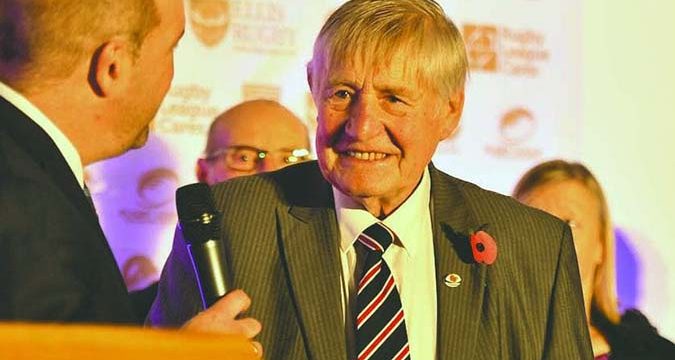
Johnny Whiteley, the last man to coach an Ashes winning side against Australia, wants to see young players given the freedom to express themselves to end the half-century of hurt against the Kangaroos.
Saturday marked the 50th anniversary of Great Britain’s last Ashes win over Australia, when Whiteley’s side won 21-17 in front 61,258 fans at the Sydney Cricket Ground.
That wait will go on after the cancellation of this year’s series due to the coronavirus pandemic. And Whiteley has a warning on the current quality in the NRL.
Whiteley said: “I’ve seen every Australian game since they’ve been back playing and they’ve got some very good young players coming through.
“It could be a while again yet.
“We need to get more strength in depth in our club football, start again in the schools and bring players through.
“And we need young players that haven’t been brainwashed – somebody like the Alan Hardistys or Alex Murphys of this world.
“All players need coaching and to have a sense of direction, but it’s no good being brainwashed into certain systems.”
Whiteley could sense a shift in the balance of preparation, physical conditioning and tactics back in 1970, but he believes the talent and spirit of his squad that year counteracted it.
He explained: “By the time 1970 had come our standards in England had dropped if you looked at the 1958 tour to then.
“In Australia the American Football techniques had upgraded everything from the attitude to the physicality that the game entailed.
“Because we weren’t creating enough quality players of that standard, the best players didn’t have to work that hard to get into the side.
“But what got us through in 1970 was the will to win and how the players played for each other.
“The improvement in some of those younger players on that tour was also astounding.
“The likes of Jimmy Thompson and Malcolm Reilly came to the fore and the work ethic of the team was absolutely superb.”
Part of that was down to an enforced change in approach early in the tour, after they were soundly beaten 37-15 in the first Test.
Whiteley explained: “What happened is that on previous tours they would start in Sydney against the big club sides, but we started up in Darwin and played some of the country teams first.
“We won the first five games but I was trying to tell them we weren’t playing anybody, and as a result we weren’t hardened to the standard we needed to be for the first Test.
“I told them it was going to be a war and we were well beaten physically.
“So we revamped the international side and a lot of other players came to the fore.
“We reorganised and some of the younger players started to mature very quickly.”
One of the players brought into the side was Tony Fisher, who replaced Peter Flanagan after the first Test.
Fisher, who is now 77, said: “They picked all the stars in the beginning. We were in the country team, as they called it, and we’ve got to be thankful that they changed it.
“I put that down to Johnny Whiteley. He didn’t have any favourites and said they’d had their chance, so now we had ours.
“Playing between Dennis Hartley and Cliff Watson was the best thing you could have as a hooker.
“It was a marvellous squad full of talented players like Malcolm Reilly, Dougie Laughton, Jimmy Thompson and Roger Millward and we all got on.”
Coach Whiteley also performed the role of conditioner and physio on the tour, and would train alongside his players, pushing them on.
The squad formed a bond that grew throughout the 12-week trip, losing just once in 24 matches in total and finishing with an undefeated leg in New Zealand.
But it is that day at the Sydney Cricket Ground on July 4, 1970, that will most go down in history.
Since then, there have been 13 Ashes series, including five Australian whitewashes, and a cumulative score of 31-8 in the Kangaroos’ favour in Test match results.
Whiteley added: “By the time we got to the third Test in 1970 we were so confident, we were absolutely buzzing.
“We had become a good side and the score didn’t reflect the game, we were always in charge.
“It said it all that an Australian crowd, who were a hard public, clapped off an English side instead of booing them.
“We had a ball on that tour. If I see any of those players now they give me a big bear-hug and say it was among the best 12 weeks of their lives.
“That’s something that money can’t buy.”
